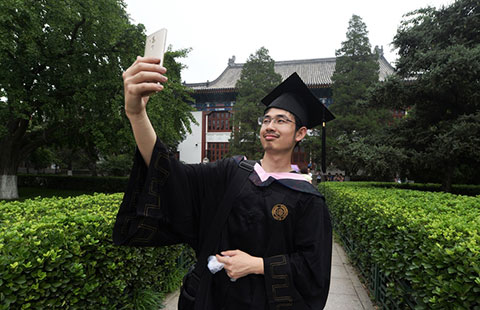Experts call for more policy involvement
By Yang Wanli (China Daily) Updated: 2012-12-06 08:06Policymaking at all levels of government could be hampered by a lack of public participation, social analysts warned.
The alert comes after a major national report said half of China's residents had never been involved in any kind of official public participation.
 |
|
More than 300 volunteers from colleges in Xi'an, Shaanxi province, picked up garbage on Tuesday as part of a campaign to protect the environment of Qinling Mountain. Yuan Jingzhi / for China Daily |
Released by the National Institute of Social Development on Tuesday, the report is based on a survey of 8,070 residents aged over 16 in 1,223 cities and counties.
The authors define public participation as a person communicating with the government or a social organization, or being part of activities held by residential communities, workplaces and NGOs.
"Public participation is a good index to show social governance," said Huang Haotao, secretary-general of the Chinese Academy of Social Sciences.
"The government should give more support to NGOs and communities to encourage greater public involvement in policymaking. Only policies based on public opinion can be beneficial."
Gao Yong, an associate researcher at the National Institute of Social Development, said China still does not have a standard system to collect public views in advance of a policy decision.
For example, he said, public hearings on government plans are rarely well-organized and are turned into a formality.
"Some residents are told to take part in a hearing just a day or two in advance and are not well prepared to give constructive advice," he said.
It was reported in April that Hainan province held a public hearing about electricity prices but only contacted residents five days in advance. No one showed up. Some residents said the hearing was "nonsense" and doubted that it would change the end result. In some cities, it was reported that the same resident participated in various hearings as a "voiceless representative" of the public.
"It's sad that the public has already lost its trust in the role they should be playing in policymaking," Gao said.
Beijing resident Gao Xiuying, 52, said she once participated in a hearing about repairs to her community's heating system.
"I expressed my hopes about the new system but couldn't say a word on the technical things," she recalled. "It was too professional and the decision was finally left to the experts.
"It's a learning process. Even though most residents aren't able to use their rights properly or are not qualified enough to give constructive proposals. They should be encouraged to learn," Gao Xiuying said.
The institute's report also showed that residents aged between 16 and 30 are the most active in public participation, especially Internet and NGO activities.
Li Hanlin, president of the institute, said young people are more passionate about expressing their ideas and have more access to information.
"They will definitely give strong vitality to China's public participation," Li said.
Yangwanli@chinadaily.com.cn
- Identical natural quadruplets born in Shanghai: 1 in 13 million
- China's second space lab Tiangong-2 reaches launch center
- Arbitral court not best place for South China Sea dispute settlement: Croatian law expert
- Growth stable, meets expectations, Xi says
- Tibet forum: Road to progress
- 3D printer gives man a new spine
- UN chief: Settle differences peacefully
- Heavy rains sidelining couriers
- Producers aim to change negative perceptions
- Xi orders more troops to join flood control










